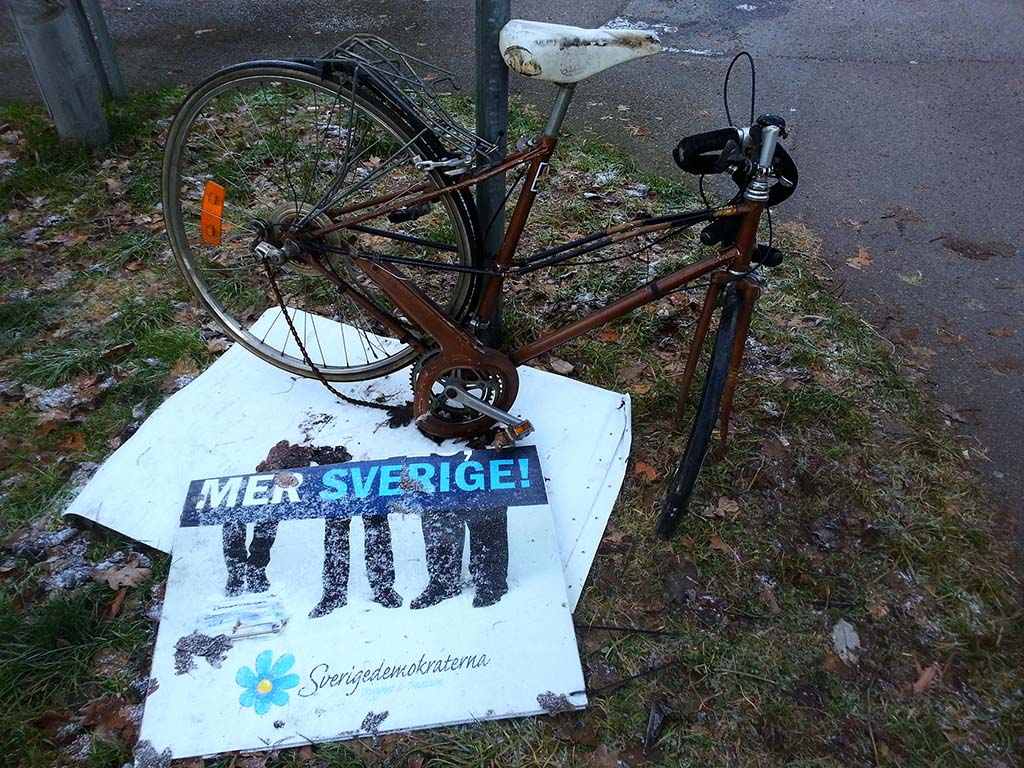
They are gaining ground in general elections. The most recent stride forwards was on Sunday by the Sweden Democrats, who increased their share of the vote from 12% to 17.6%, cementing their place as the third largest party. But the big prize being eyed by the anti-European and xenophobic parties (the two phenomena go hand-in-hand) are the elections to the European Parliament next May. They even boast an external Eurosceptic, Steve Bannon, whose strategy helped ensure victory for Trump and who now wants to extend his nefarious electoral techniques, along with the US President’s leanings, to these European parties.
It may seem paradoxical, but the anti-Europeans are Europeanising in order to thwart Europe. They operate at a pan-European level to make gains at a national level. But although they share goals and causes they do not constitute a single bloc, with each one being distinct, even to the extent of subscribing to different political groups. The Hungarian leader Viktor Orbán might have formed an alliance, described by some as a Trojan horse, with his Italian counterpart Matteo Salvini, but their parties belong to different groupings in the European Parliament. Whereas Hungary’s Fidesz party is a member of the European People’s Party, something that will have consequences when posts are shared out after the May elections, the Italian Lega party belongs to EFD, Europe of Freedom and Democracy, and there are others. The French National Rally (formerly known as the National Front) is proposing to assemble a ‘new majority’ in the European Parliament, or at least a sufficiently strong minority, to block further moves towards European integration, above all but not exclusively in the area of immigration. Salvini meanwhile is talking about a ‘league of Legas’. Whatever happens there is the real prospect of new political constellations.
They share an anti-immigration attitude and the desire to retrieve national sovereignty. In this respect they are highly liable to contaminate political discourse because this new and not so new extreme right is contaminating all political debate in Europe (and beyond, as is evident in the US). They dictate the agenda. The anti-immigration stance that characterises them has spread to a significant part of the moderate right. Even the left has not been immune: witness the launch in Germany of the Aufstehen (‘Rise Up’) movement, with an anti-immigration discourse, reflecting the far left’s attempt to halt the rise of the right-wing Alliance for Germany (AfD), particularly in the former East Germany and, worse still, what has happened in Chemnitz. Nor should we forget the Five Star movement in Italy.
The rejection of immigration is a question of minorities –large minorities, but minorities nonetheless– but with a significant impact on Europe (and the US too). According to a recent Pew Center survey, people in Western Europe who see immigrants as benefiting rather than harming their economies are clearly in the majority: 61% in the case of Spain, 72% in Sweden, 66% in Germany and 54% in France. Significantly, the only European country to deviate from the rule, as in other cases, is Italy, with 45%.
Emmanuel Macron stands out among the centre-right and centre-left in Europe with an openly pro-European stance. Despite his current loss of popularity in France, as Angela Merkel wanes he has become the leader of reference of a major country. In order to succeed he must not only tackle these movements, the symptoms, but also the causes. The latter, however, are manifold and complex. It is true that Sweden has taken in more refugees from the recent crises in the Middle East than any other country after Germany (and relative to its size, the most), but the economy is going well and unemployment is low. In a more general sense it is also a reaction among the middle and working classes to their loss of status and power, leading them to reassert their identity, as the British political scientist Colin Crouch has rightly argued. The defence of identities matters and is dangerous if handled badly. As Francis Fukuyama warns in his latest book, identity politics has the power to break democracy.
The European elections in May look set to be crucial, especially if the supporters of these movements mobilise in greater numbers than those who, with no great enthusiasm, support furthering, or at least maintaining, European integration. The voting system works in their favour. It will not be easy to wrest control of the agenda away from them, but an attempt must nevertheless be made with attractive and reassuring proposals; these should address the problems mentioned above, the lasting effects of the crisis that began in 2007-08, with the ensuing disruption to social and cultural structures, and the current economic landscape, which is less rosy than expected. Otherwise the EU and its member states are liable to emerge weakened in their values, institutions and policies.


